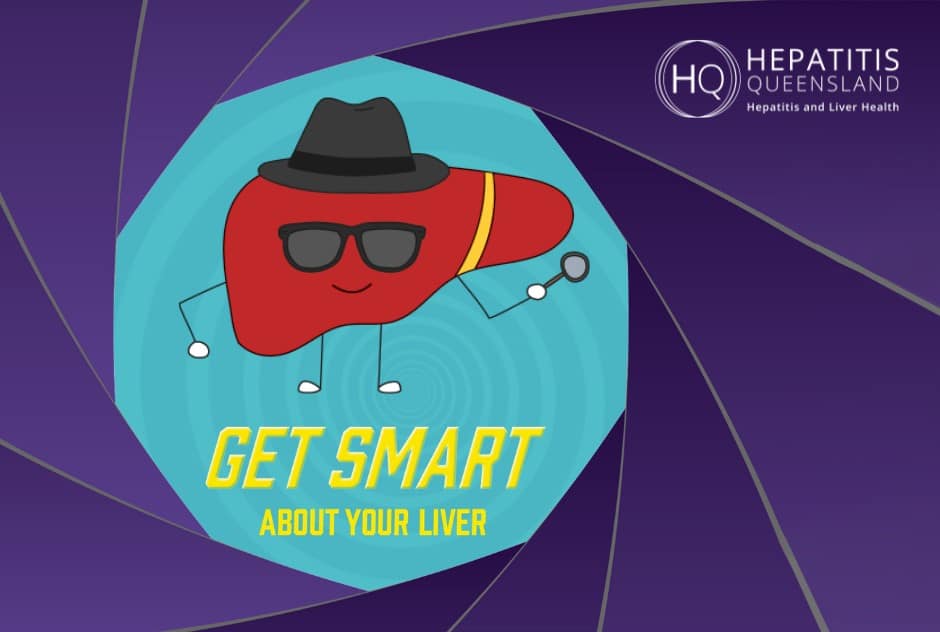‘Get Smart’ About Liver Health This July

Liver disease is on the rise in Queensland with up to 1 in 5 people living with fatty liver disease and 1 in 100 living with viral hepatitis.
This July, in support of World Hepatitis Day (28 July), Hepatitis Queensland is encouraging all Queenslanders to ‘Get Smart’ about their liver health.

Anyone can get liver disease and most people do not know they have it. Left untreated, liver disease can lead to permanent liver damage such as cirrhosis or liver cancer.
The good news is simple lifestyle behaviours can reduce the risk of serious liver disease. As well as eating a balanced diet, exercising regularly, and drinking alcohol responsibly, Queenslanders can see their GP for a liver check and hepatitis test.
Because there are often no symptoms, those with hepatitis B and C can live for many years without realising they have the virus, unaware of the damage being caused to their liver.
By 2030 we have the opportunity to virtually eliminate hepatitis with highly effective treatments that can cure or slow the disease before it leads to more serious problems caused by liver inflammation.
Simple treatments can cure hepatitis C in 95 per cent of patients with little to no side-effects. Hepatitis B can be prevented through vaccination or managed long-term with monitoring and treatment that can slow the virus.
Tips for getting smart about liver health
- Achieve or maintain a healthy weight. Gradual safe weight loss can play an important part in helping to reduce liver fat. It is normal for the liver cells to retain a small amount of fat, however, it is the excess of fat (usually more than 5%) that defines your liver as “fatty liver.” Keeping your liver healthy by reducing fat in the liver is important, and fatty liver is completely preventable.
- Eat a healthy, well-balanced diet. Eat plenty of vegetables, choose whole grain bread or cereals high in fibre, eat regularly fish, nuts, seeds and oils and limit processed foods and sugary foods and drinks. Some studies show that sugar can be as damaging to the liver as alcohol, even if you’re not overweight. It’s one more reason to limit foods with added sugars, such as soft drink, pastries, and lollies.
- Exercise regularly. Exercise improves your overall health and wellbeing and helps maintain a healthy body weight.
- Limit alcohol intake. Heavy alcohol use can permanently damage your liver and its ability to function. It is recommended that adults have no more than two standard drinks per day with at least two alcohol-free days per week.
- Quit smoking. Visit QuitHQ.
- Control your diabetes if you have it. Keep your blood sugar levels under control.
- Ask your GP for a liver health check and hepatitis test. Viral hepatitis often has no symptoms but left untreated, can lead to liver damage, cirrhosis, and liver cancer.
- Ask for a referral to a dietitian or exercise physiologist for practical advice on food and nutrition and exercise.
Join the urgent mission this World Hepatitis Day, visit www.liversmart.com.au to ‘Get Smart’ about liver health.


